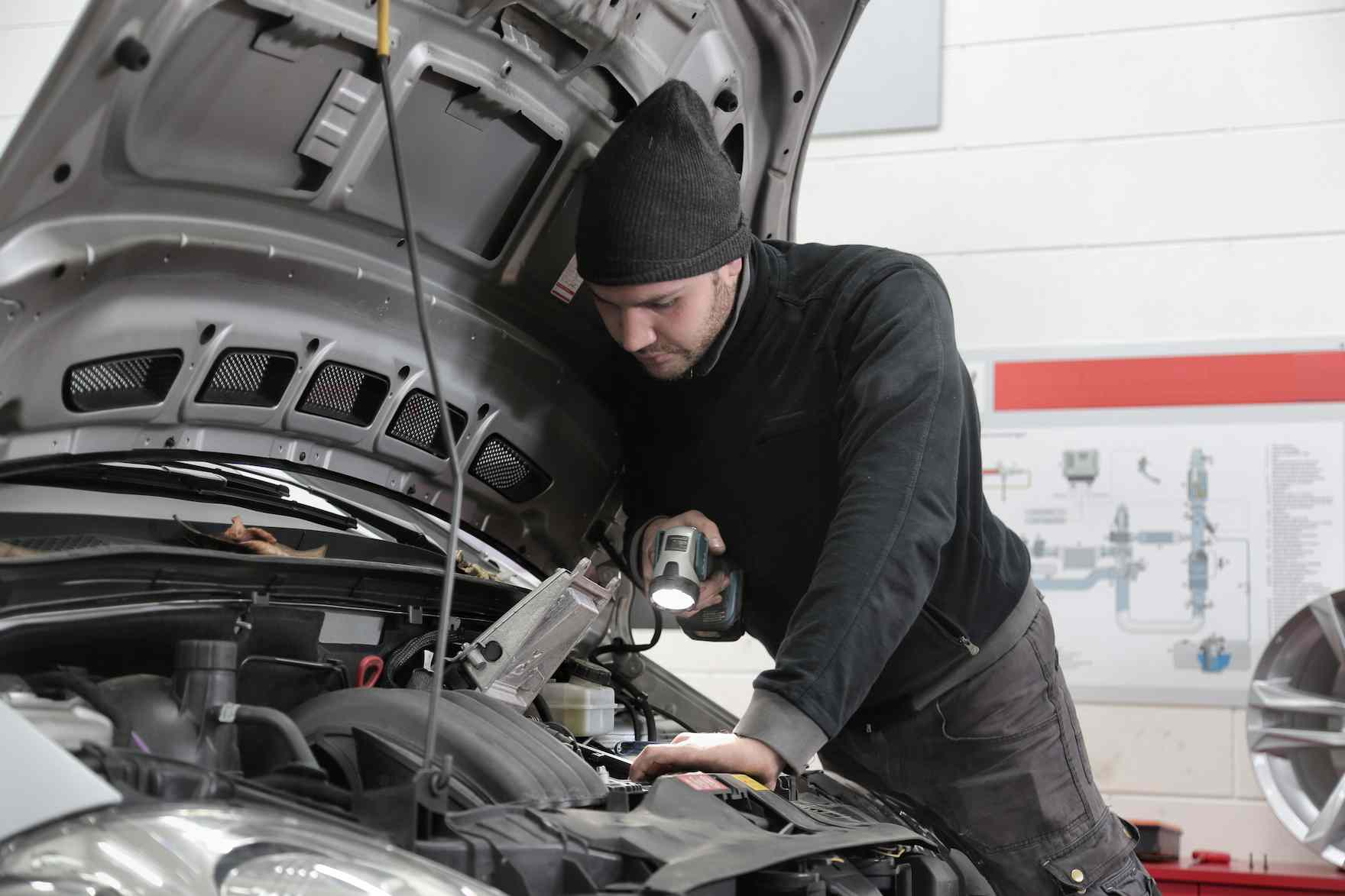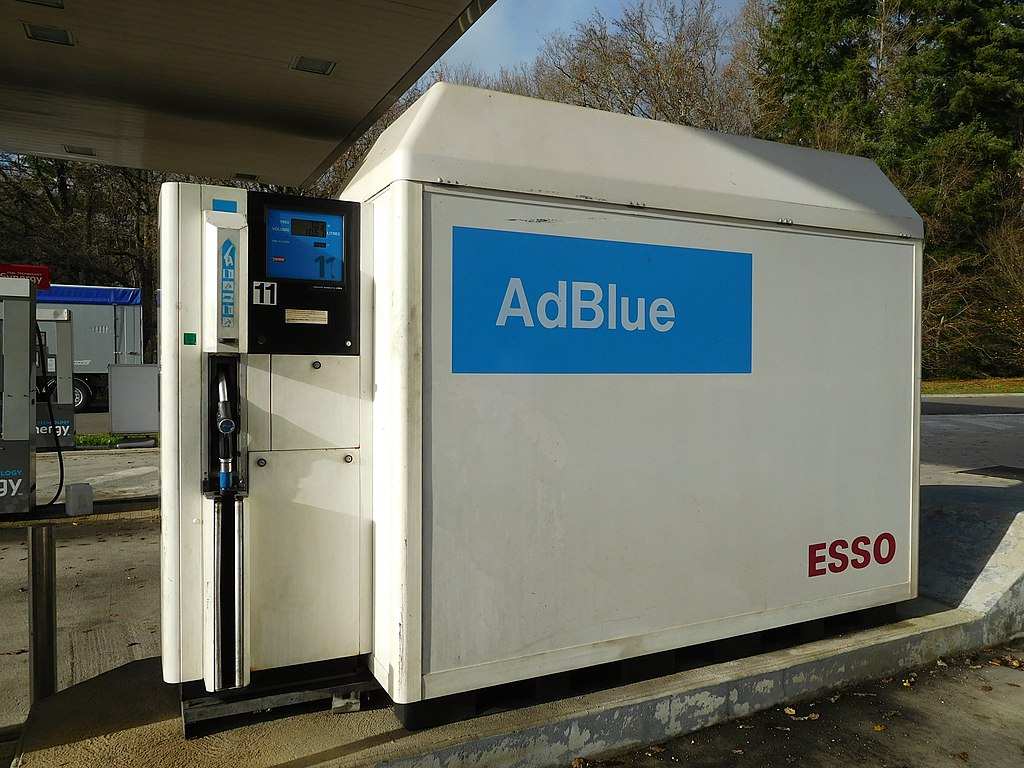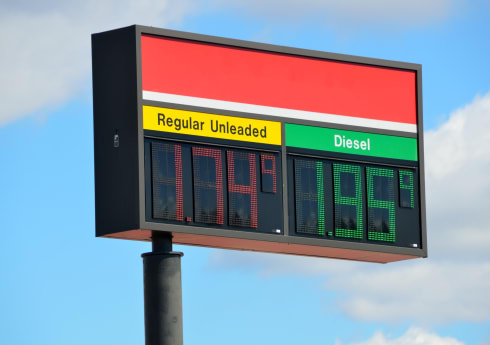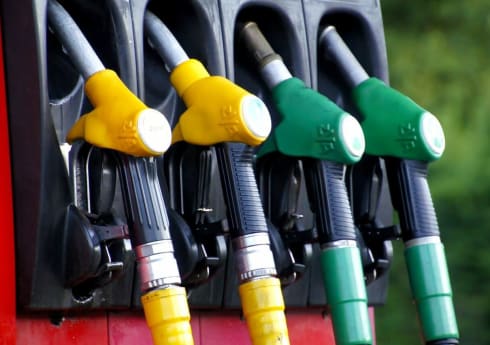What Is AdBlue?
AdBlue is a diesel exhaust fluid that makes your vehicles more eco-friendly
Doing your bit for the environment is about more than just looking after future generations. Your customers expect your business to be eco-friendly, so helping the environment also protects your business now and into the future.
We explain what AdBlue is, why it’s important, and how much it costs. Read our guide to find out where to buy AdBlue and how to pay for it with your fuel cards.
What is AdBlue for cars?
AdBlue is the trading name that’s given to a diesel exhaust fluid that helps reduce harmful emissions from the exhaust gases of diesel cars.
AdBlue is the most commonly used diesel exhaust fluid. It’s stored in a different reservoir to your car’s fuel tank, often next to the fuel filter.
AdBlue has become even more important to businesses since the Euro 6 demand for a 67% drop in nitrogen oxides that come from the exhaust emissions of diesel engines. What does AdBlue do?

Credit: Pexels
AdBlue is designed to reduce harmful emissions of mono-nitrogen oxide from cars and other diesel vehicles.
These emissions are reduced by small amounts of AdBlue being sprayed onto the gas created from a running diesel car engine.
AdBlue changes the mono-nitrogen oxide in nitrogen and water, lowering the harmful effects of running a car and making your driving greener.
What is AdBlue made of?
AdBlue is made of a combination of deionised water and very pure urea. No matter which type of AdBlue you buy (whether it’s the branded version or a competitor), the levels of deionised water and very pure urea should always be as follows:
- Deionised water: 67.5%
- Urea: 32.5%
Is selective catalytic reduction (SCR) an AdBlue?

Credit: Wikimedia
AdBlue is an Aqueous Urea solution and is a key element of what is known as selective catalytic reduction (SCR) technology. Thus, SCR isn’t an AdBlue, but something that works in tandem with the Aqueous Urea solution to help lower the harmful NOx emissions produced by vehicles.
Does my car need AdBlue?
Many diesel cars registered after September 2015 use AdBlue to reduce emissions. In general, if you own a Euro 6-compliant diesel Audi, BMW, Citroën, Jaguar, Land Rover, Mercedes-Benz or Peugeot, it’s likely to use AdBlue technology.
Using it reduces harmful emissions of mono-nitrogen oxide, emissions of which can restrict the growth of vegetation — that’s the food you eat and the trees that help you breathe.
It’s possible to electronically disable the AdBlue system along with removing the associated dashboard lights and warning messages in vehicles, normally by reprogramming the engine management system or occasionally hardwiring a small electronic unit into the vehicle. For any vehicle to be used on public roads, this is illegal and does result in prosecution.
If you’re a business owner or fleet manager thinking about investing in AdBlue, you can buy it using most fuel cards. All you have to do to be sure you can purchase AdBlue with your fuel cards is check the terms of your card to confirm it’s allowed.
How do I use AdBlue?
AdBlue is non-hazardous and really simple to use. But there are some dos and don’ts you need to keep in mind when using it. Improper use can lead it to contaminate, meaning the SCR system won’t function correctly.
Here are the dos and don’ts of using AdBlue:
Do
- Pour it into the AdBlue tank of your vehicle — the AdBlue filler is clearly marked
- Make sure your AdBlue container and tank seals are intact
- Keep your AdBlue equipment free of dirt and dust
- Clean your equipment with demineralised water
- Store your AdBlue at an ambient temperature — above -11˚C and below 30˚C
Don’t
- Put AdBlue in your diesel tank
- Put diesel in your AdBlue tank
- Mix AdBlue with any other liquids
- Leave spilled AdBlue on the floor
- Override your AdBlue system — it’s illegal and could damage your vehicle
How much AdBlue do I need?
The amount of AdBlue you need to use varies, depending on your vehicle, tank size and driving style.
Generally, you need to use a litre of AdBlue for every 600 miles travelled by your vehicle. However, it can equally be the case that you need to use a litre of AdBlue every 350 miles — it all depends on the driver.
You’ll often need to refill your tank from between 3,000 to 12,000 miles, though this depends on the size of the tank in your vehicle.
Is all AdBlue the same quality?
Because AdBlue is the trade name for a type of diesel exhaust fluid, you can be certain that all AdBlue is of exactly the same quality.
What isn’t certain is if other diesel exhaust fluids (non-branded AdBlue) are of the same standard.
However, because all diesel exhaust fluids that perform the function of AdBlue use the same solution of deionised water (67.5%) and urea (32.5%), you can be pretty confident that any brand you buy will be high-quality.
Buying branded AdBlue helps make your fleet vehicles more environmentally friendly. You can purchase AdBlue using the best fuel cards, so you can buy now and pay later to do your bit for the environment.
What’s the average AdBlue price?
Like all products, the price of AdBlue varies. You can pay anything from £0.70 per litre to £4 per litre, depending on where you buy your AdBlue from. Shopping smart could save you a significant amount of money when buying AdBlue, so look around to get the best price.
Find out where to buy AdBlue
As the leading brand of diesel exhaust fluid and a vital tool for making your vehicles eco-friendly, AdBlue is available in most retailers that stock car fluids. You can buy AdBlue in supermarkets, specialist vehicle stores, and motorway service stations.
You can pay for AdBlue using fuel cards
Thinking of buying AdBlue to make your vehicles more eco-friendly? You should know that you can pay for it using fuel cards. All you need to do is make sure your card is set up to pay for AdBlue, pick up a bottle, and then pay for it using your fuel card — it’s that simple.
You can make sure you have the right fuel card for your business by comparing the best fuel cards with iCompario. Simply use our free comparison tool, enter your company’s requirements, and you’ll get a list of suitable fuel cards.
iCompario is the free online marketplace for business products and services, where managers and owners can research and rapidly compare fuel cards, vehicle tracking systems, insurance, telecoms and other essentials. The team follows up online queries by telephone so every site visitor finds their ideal, future-proof product at the best price possible.



